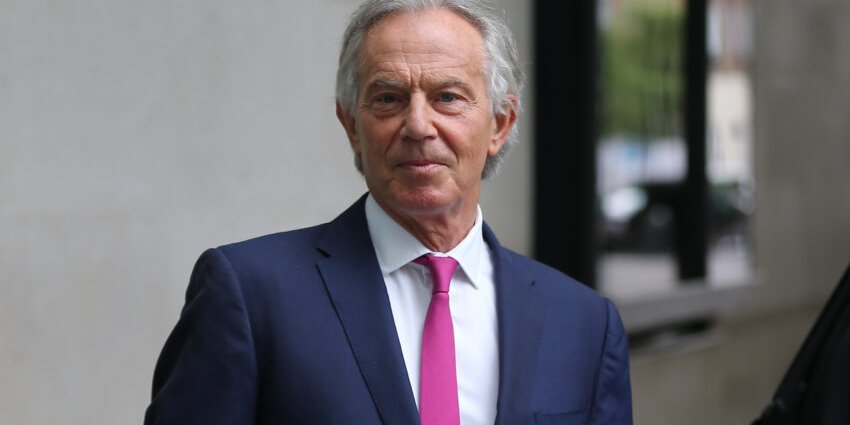Former Prime Minister Sir Tony Blair is set to advise Labour that without adopting radical public service reforms and embracing artificial intelligence (AI), tax increases will be unavoidable.
Addressing the pressing need for productivity improvements, Blair will highlight the economic challenges posed by an ageing and increasingly unhealthy population.
Blair, Labour’s most successful electoral leader, will warn Sir Keir Starmer that traditional growth methods are insufficient for the coming years. He will advocate for the new government to leverage emerging technologies to automate significant parts of the public sector and enable the NHS to use medical records proactively for preventive care.
Key figures such as Wes Streeting, the new health secretary, and Pat McFadden, the Cabinet Office minister responsible for government overhaul, will feature prominently at the annual Tony Blair Institute (TBI) conference.
While Blair has commended Starmer, he will press the Prime Minister to pursue more ambitious public service reforms and economic strategies, stressing that without radical action, tax increases will be necessary. “Britain is facing an unenviable triple whammy of high taxes, heavy debt, and poor outcomes. And worse is to come with the demographics of an ageing population against us, deep structural health problems, and rising numbers of long-term sick,” Blair will state.
Blair’s speech comes as Starmer grapples with questions on how to avoid austerity and tax hikes. According to TBI analysis, without a strategic shift, taxes must rise by approximately 2% of GDP by the end of this parliament, 3% by the next, and 4.5% by 2040 to stabilise debt.
The current freeze on income tax thresholds is projected to increase the tax burden by about 1% over this parliament. However, the TBI warns that a further one percentage point hike is required to avoid spending cuts, with more significant rises needed in the coming decade to maintain current public service levels.
Starmer maintains that growth will address these fiscal challenges, but Blair contends that conventional policies are insufficient for the needed economic boost. Emphasising the potential of the technological revolution, Blair will argue: “Stable government and some clear early wins can definitely help, but there is only one game-changer: harnessing effectively the 21st-century technological revolution.”
Blair will underline the transformative potential of this revolution, stating: “Things which were impossible will become possible; advances which would have taken decades will happen in a few years or even months; the value we can add, the improvements in efficiency we can make, the radical benefits in outcomes we can secure, could be truly revolutionary.”











